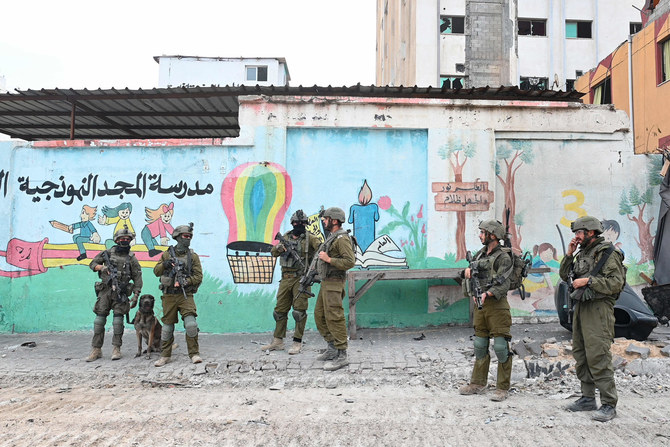
I suspect that had the parliamentary elections in Iraq been held last year, Iran would have easily imposed its choices for prime minister and the government. Fortunately for the Iraqis, however, things have developed, internally and externally, against the wishes of Gen. Qassem Soleimani, who regards himself the governor of the Fertile Crescent.
Moreover, the Americans and their important allies have been active this year, dealing with the elections as a serious matter that needs to be monitored to counterbalance the Iranian pressure. The Israelis also have entered the game in their own way, threatening to bomb Iran’s military presence in Iraq regardless of the consequences.
In any case, it seems that the elected Iraqi MPs who are willing to stand against the ambitions of the Iranian regime now form the majority in the Iraqi parliament. More than 171 MPs have joined the Sairoun moderate parliamentary bloc, led by Shiite cleric Moqtada al-Sadr, making it bigger than the “Iran-affiliated” bloc led by Nouri al-Maliki and Hadi al-Ameri.
It is natural, therefore, for Tehran to be shocked by the developments. It had considered Iraq a more secure “client state” than Syria and Lebanon, but now it can see its political, security and military investment evaporating before its eyes. We should not forget, either, that Iran credits itself with liberating Mosul from ISIS and saving Baghdad from collapse at the time.
Not surprisingly, Sky News Arabia reported yesterday that some Iraqi deputies have received death threats from the Iranians if they support the Sairoun bloc. Thus, it is enough to read the statements and news from Iranian institutions to recognize the extent of the anger in Khamenei’s court. All of its reactions portray the rise of Sairoun as an American conspiracy and refuse to respect the choices of the peoples representatives.
As for Israel, it is clear that its statements are threats aimed at Iran and at any future Iraqi government that might think of bowing to Tehran’s demands. Israel has warned the next Iraqi government that hosting Iranian missile batteries “fleeing” from Syria into Iraq will invite attacks by Israeli fighter-bombers, which will not be deterred by the issue of sovereignty from seeking out and bombing these weapons.
Is Israel serious in its threat? Is it aware that Iraq, unlike Syria, is an independent, stable state? Israeli Defense Minister Avigdor Lieberman, talking about the possibility of bombing the Iranian Revolutionary Guards in Iraq, hinted that “we are not limiting ourselves to Syrian territory. That should be clear.” The same threat was reiterated by the deputy chief of the general staff of the Israel Defense Forces.
It is clear to everyone that Iraqis are deciding the future of their country and the future of their children, not just the choice of government and premiership. The rise of any pro-Iranian group would make this great country, which has suffered so much, an easy target for a system that is living through its darkest days.
The regime in Tehran intends to use Iraq as a “confrontation state,” in other words a sandbag to hide behind on the line of fire against the US and its allies. It also wants Iraq to launder Iran’s dollars and buy its goods with the Iranian rial. Furthermore, the Iranian regime wants to use Iraq to smuggle goods, break the sanctions imposed on it, and use its water to alleviate the crisis being experienced by the residents of the Iranian countryside because of the regime’s bad development policies and its waste of Iran’s savings in the wars in Lebanon, Syria and Yemen.
Indeed, the Tehran regime wants to turn Iraq into another Lebanon, in which its militias, such as the Iraqi Hezbollah, are active and fight on its behalf, just like the Houthis in Yemen.
Everybody is now waiting for the Iraqis’ crucial decision, which will mean much not only to their own country, but to the entire region.












